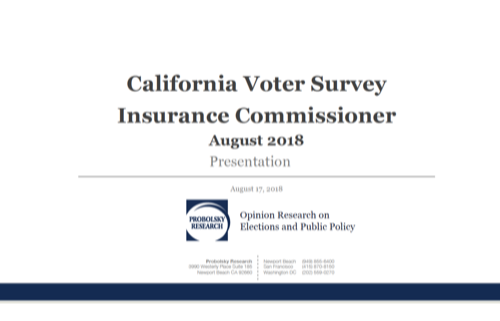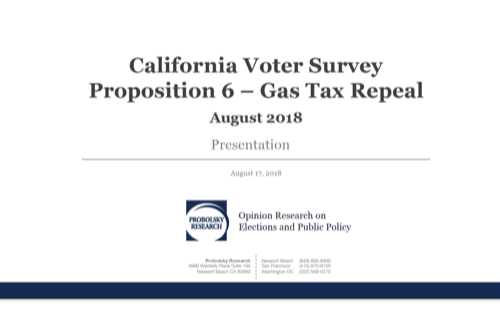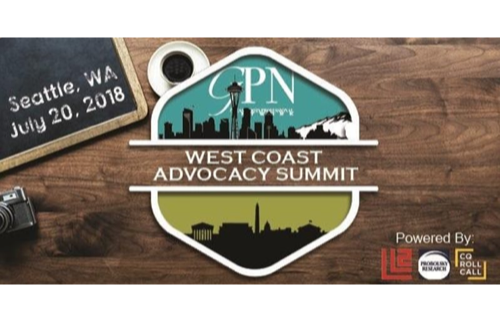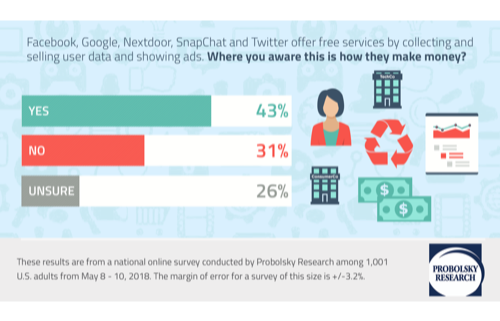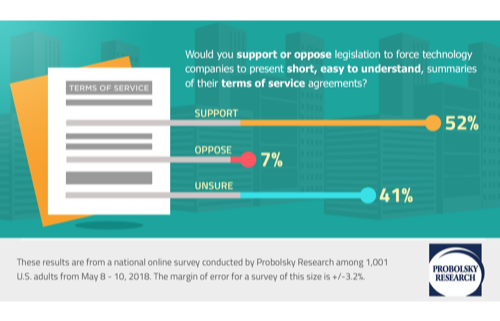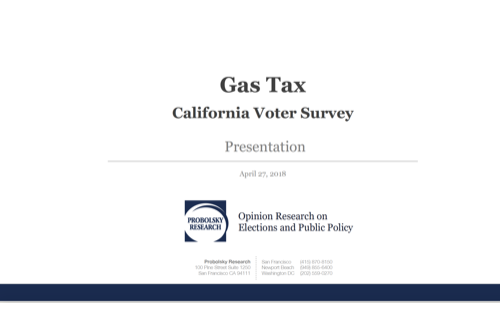Poizner on top in race for CA Insurance Commissioner
/in News, Insights & Research/by Probolsky ResearchWe included the race for Insurance Commissioner on our latest statewide poll. We conducted this poll and present these results for public interest purposes. We have no client in this race.
Poizner leads Lara by 6%, but that number is dwarfed by the 39% of voters who say they are unsure.
Prop. 6 “Gas Tax Repeal” Failing
/in News, Insights & Research/by Probolsky ResearchWe included Proposition 6 on our latest statewide poll. We conducted this poll and present these results for public interest purposes. We had no client on this measure.
Proposition 6 is on track to fail in November.
Our latest polling shows 48% of voters oppose the measure when presented with the title they will read on their ballots.
Fewer than 60% of Republican voters support the gas tax repeal.
It is important to point out the obvious, that the ballot title does not say, “repeal the gas tax” which is how the opposition is presenting their message. As the voter contact campaign kicks into gear, we expect changes in the numbers.
Adam Probolsky to speak at Netroots Nation today on Anti-Muslim Rhetoric
/in News, Insights & Research/by Probolsky Research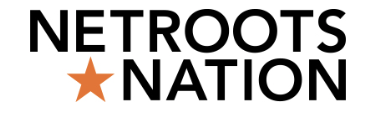
Firm president Adam Probolsky will speak today at Netroots Nation in New Orleans on a panel: Facing Anti-Muslim Campaigns Head on – and Winning
https://www.netrootsnation.org/nn_events/nn18/facing-anti-muslim-campaigns-head-on-and-winning/
He will discuss recent national polling we conducted on the subject:
https://www.muslimadvocates.org/files/ProbolskyPollMemo.pdf
https://www.muslimadvocates.org/new-poll-americans-not-falling-for-anti-muslim-political-rhetoric/
West Coast Advocacy Summit – Seattle
/in News, Insights & Research/by Probolsky ResearchAdam Probolsky presented the results of our national and Washington state polling at the Grassroots Professional Network‘s West Coast Advocacy Summit in Seattle. He shared data on local head taxes, corporate political engagement among young people and how Eastern Washington sees Seattle.
Reach out to anyone at Probolsky Research for a briefing on this data.
To Earn Customer Trust on Data Privacy, You Need to Change the Narrative
/in News, Insights & Research/by Probolsky Research
Adam Probolsky recently published a guest article at Entrepreneur.com
To Earn Customer Trust on Data Privacy, You Need to Change the Narrative
Here are three actions tech companies can take today.
https://www.entrepreneur.com/article/316138
Every morning, people are willing to cough up a few bucks for a dark roast. But, four out of five Facebook users say $1 per month is too steep a price to pay for the privilege of logging in. A funny fact, considering it is a little harder to make a platform that connects 2 billion people than it is to make a morning beverage. Nevertheless, many of these same people have reacted strongly to the recent data collection so-called scandals.
But, even if anger over these scandals is more hype than reality, it does not mean tech companies can ignore the problem. Considering that anger is the emotion that spreads fastest on social media, companies should be more careful than ever when it comes to the hot-button issue of data — first and foremost by being sure to develop secure products and services, and having integrity.
Beyond that, however, there are a few more proactive steps companies should take to prevent this “manufactured” outrage from being directed at them:
Take control of the narrative.
For days after the Cambridge Analytica scandal broke, Mark Zuckerberg and Sheryl Sandberg — the only public faces of the company — were silent and unavailable to the media and users. This allowed everyone other than the company to define the narrative, and led to rampant speculation about the company’s culpability. In fact, it quickly led to the explosion of the #DeleteFacebook movement, which even garnered support by tech leaders like Steve Wozniak.
It is not exactly clear what took the tech giant’s leaders so long to respond (perhaps it was to avoid Zuckerberg’s public perception issues, or to protect Sandberg for a future run for political office). But, what is clear is that had Facebook leadership activated a ready-made crisis plan and put senior management in front of a camera to take control of the narrative, it could have stemmed the tide and somewhat mitigated the fallout. Starbucks, for example, had success doing just that in the wake of its recent racially charged public relations crisis.
With that in mind, Facebook (and other famous-founder companies) would be wise develop more public faces — ones that are market-research tested, viewed credibly, and willing to sacrifice personal time and reputation to commit to the task. And other companies should do the same as well, in order to be able to get ahead of the issue and shape the story themselves.
Facebook has since made an ad about how bad it has become, as it tries to be introspective and pledges to do better. While this is a great example of taking control of the narrative, it is something that should have been done early and proactively, before the issue spiraled out of control. In this, other companies can learn from Facebook’s mistake.
Simplify the terms of service.
A second step companies should take to reduce the risk of generating outrage over their use of data is to make sure their users are aware of exactly how they are using it in the first place. And this begins with simplifying companies’ terms and conditions — something that TechCrunch actually calls “the biggest lie of our industry.”
Faced with language that is intentionally (and unnecessarily) lengthy, complex and vague, a recent Deloitte survey of 2,000 consumers in the U.S. found that a whopping 91 percent of people actually consent to legal terms and services conditions without reading them. For younger people, aged 18-34, the rate is an even higher 97 percent.
As such, companies should take it upon themselves to educate their users by making their terms and conditions easier to read — more specifically, by using plain language summaries similar to those required for legislative ballots in many states across the U.S., or the ones now required under GDPR. In fact, a recent poll by my company Probolsky Research found a majority (52 percent) of U.S. adults support legislation that would force companies to present short, easy-to-understand summaries of their terms of service agreements.
Other experts suggest that another solution to address the no-reading issue is to change the design of terms of service. “One approach is to move the contract out of the one-second moment before access is granted, and to place its terms before the user when they become relevant,” writes David Berreby for The Guardian. The experts in the article actually cite Facebook as a positive example, referencing the company’s “Who can see this?” feature that appears when users are about to post a photo.
Inspire confidence in the model you have.
Just as Winston Churchill said about democracy, one could say that the free, big data advertising model is the worst business model, except for all the others. Results from the same national survey by Probolsky Research found not quite half (43 percent) of Americans know that big technology companies collect and sell their user data and show them ads. So, while not everyone is familiar with how many FANGs make money, it is not a secret either.
Companies must realize that they are never going to please everyone, and instead strive to inspire consumer confidence by making a commitment to data security. By highlighting the steps they are taking to protect their users — and actually “bragging” about it as part of their marketing and PR strategies — companies can make sure consumers are aware of the steps they are taking to protect them and begin to get more users on board with the model.
3 Simple Ways I Relieved Stress While Running My
This, however, does not stop users from being skeptical of how companies are using their data. For this reason, companies should also pull the curtain back on their processes to show consumers exactly how their data is being collected and used. As an example, companies could make an explainer video, taking viewers on a tour through their data warehouses and showing them where their data is being stored, what it is used for and how it is being protected — just as Google does here.
At the end of the day, this is not just transparency for transparency’s sake — but also a way to demonstrate all of the good the data does for individuals themselves and for the world around them. As Google, again, demonstrates, companies therefore have an opportunity to highlight in their messaging exactly what consumers would be missing if their services were not there. After all, it is tough to imagine a world without access to Google, for example.
While data privacy — particularly in light of the recent Cambridge Analytica scandal and the even more recent GDPR implementation — is at the heart of many media conversations today, companies can change the existing narrative of outrage by beginning to take more proactive steps. Among them, companies should take control of the narrative in the immediate aftermath of scandal, improve their terms of service and work to educate the public about the benefits of their existing business models.
Adam Probolsky is president of Probolsky Research
California Special Districts Association – June 2018 Leadership Summit presentation
/in News, Insights & Research/by Probolsky ResearchThank you to the California Special Districts Association for inviting Adam Probolsky to present new statewide polling data at their Leadership Summit in Squaw Creek last week. Adam recorded a brief overview of the presentation for those who missed the event or for those who attended and want to share what they learned during the discussion. We welcome inquiries on the data or for help with research for specific agencies or regions.
Here you can see just the slides:
Less Than Half of Americans Know How Many FANGs Make Money
/in News, Insights & Research/by Probolsky Research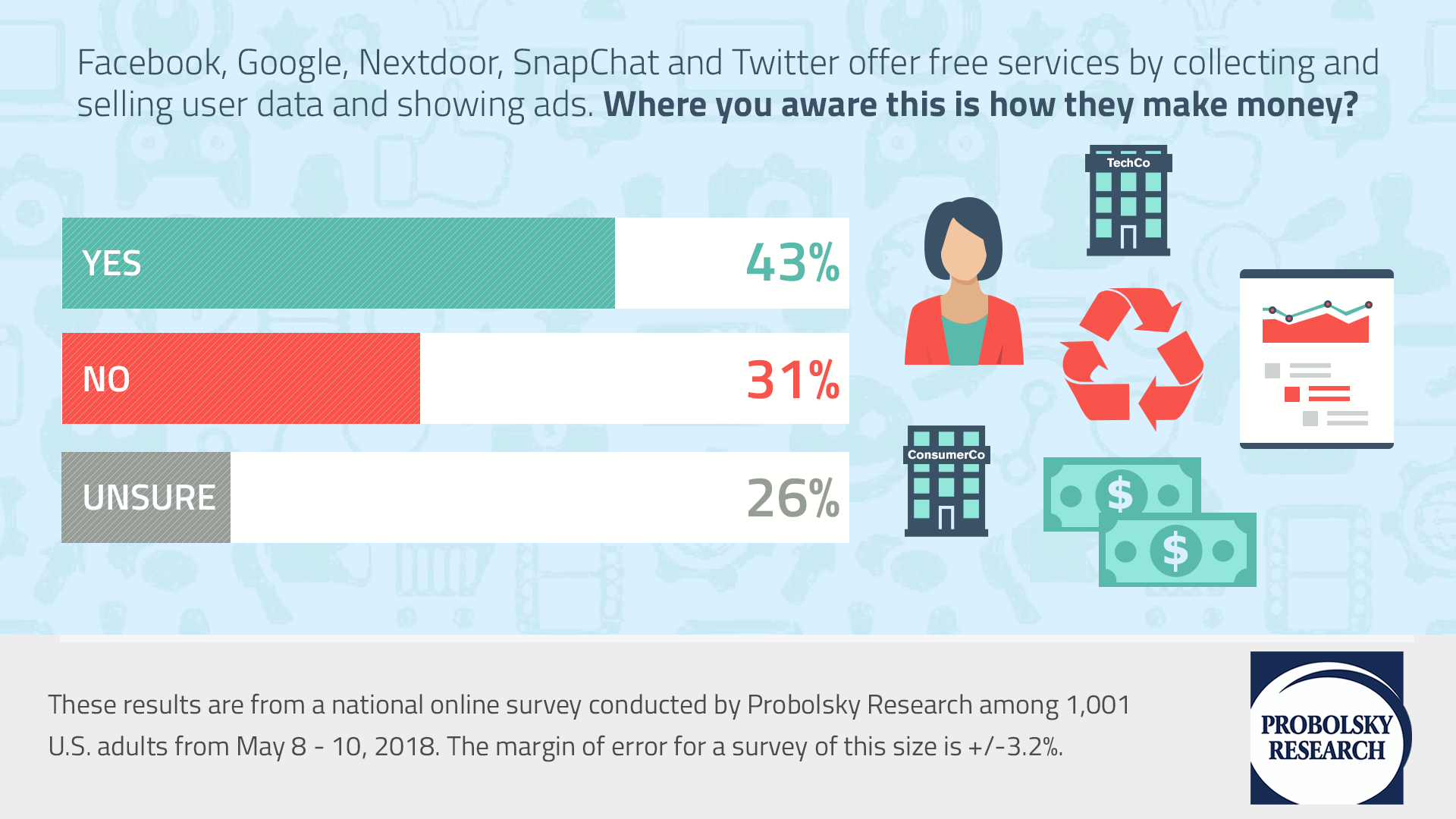
Americans Support Legislation to Simplify Terms of Service Agreements
/in News, Insights & Research/by Probolsky Research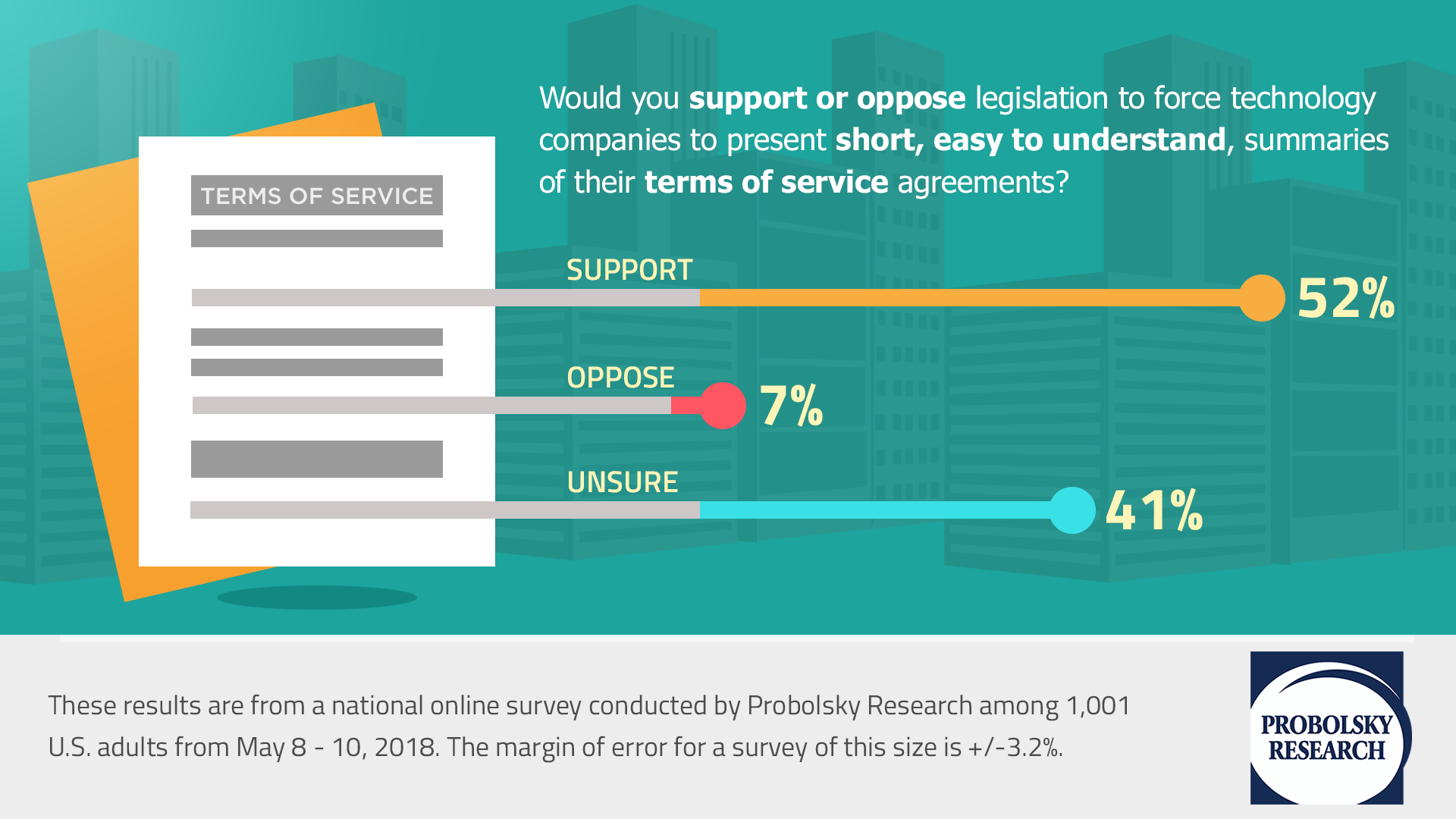
Voters Are Mixed on Proposed Gas Tax Repeal in Circulation
/in News, Insights & Research/by Probolsky ResearchThe results of our latest poll show voters are mixed on the the gas tax repeal initiative being circulated now.
The results show a divided electorate and almost no majority support or opposition among any demographics, geography or vote propensity.
In order to get the widest possible view of the possible November election, we polled among all California voters.
Probolsky Research has no client related to the proposed gas tax repeal initiative and this poll was not paid for or sponsored by any third party. We are releasing this data for public-interest purposes only.
The poll presentation can be found here:
Latest Articles
AAPOR


Contact Details
23 Corporate Plaza Suite 150
Newport Beach CA 92660
100 Pine Street Suite 1250
San Francisco CA 94111
1629 K Street NW Suite 300
Washington DC 20006


